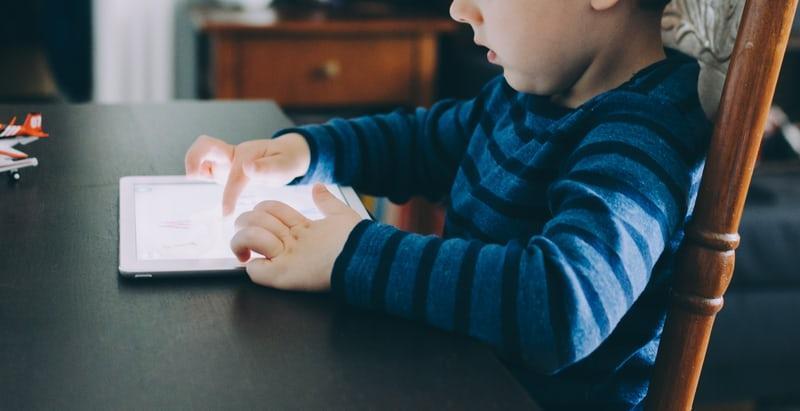Today’s generation of children are born into a world of abundant technology. From the first days, they are introduced to screens, monitors, and other tech designed to inform, entertain, and stimulate their brain. As they grow, the effects of screen time on child development is a concern that both parents and educators must address.
Studies indicate that 1 in 4 school-aged children have a learning delay of some kind. These delays vary from communication and language problems to impaired motor skills and emotional deficits. The negative effects of screen time on child development include these observable challenges. With 98% of children 0-8 spending over 2 hours a day on screens, this is a significant problem.
Physical effects on the brain
The brain cortex, the part of the brain responsible for critical thinking and reasoning, thins in children who spend more than two hours a day on screens according to a study by the National Institutes of Health (NIH). Additionally, these children performed lower on language and thinking tests. As young children immerse themselves in virtual worlds, imaginary play is less prevalent and some of the brain development that’s spurred by this kind of brain activity is stunted.
Social impairment
As young children spend more time behind iPads, televisions, and smartphones, they spend less time interacting with their peers and family members. Social development is crucial during the ages of 0 – 3. Children are observing interactions, learning how to mimic them, and beginning to engage with others. Screens limit person-to-person interactions, which prevents children from learning social skills they need for life. These effects of screen time on child development then, stay with children far into the future.
Language delays
Similarly, when screens become a regular part of a young child’s life, they miss the observations they should be making in real life and language delays can ensue. Children under 2 years of age who watch screens are unable to learn from them, even if they’re entertained by them. Research shows that children learn best from interacting and engaging with adults. Back and forth interactions are needed for language development instead of the passive listening that happens behind a screen. The effects of screen time on child development is evidenced through lower scores on reading tests and difficulty paying attention.
Sleep challenges
Blue light from screens is responsible for sleep difficulties in young and old alike. Melatonin is necessary for a good night’s sleep, and the blue light suppresses the release of this hormone. Poor sleep in children can cause behavior and learning issues in school and at home. In very young children, ages 6-12 months, excessive screen time in the evening can lead to sleep disturbances and lack of cognitive development.
The generally recommended screen time guidelines for children is as follows:
0 – 18 months none, except for video chatting
18 – 24 months little to none
3 – 5 years up to 1 hour per day
6 – 10 years up to 1 – 1.5 hours per day
11- 13 years up to 2 hours per day
In all cases, high quality programming and monitored use by parents is encouraged. Talking with your kids about what they’re watching and answering questions is helpful. Screen time should be balanced with other activities including plenty of regular exercise, imaginary play, and interactions with others.
The effects of screen time on child development are significant but can be moderated with conscious use of the media and technology available to us.



